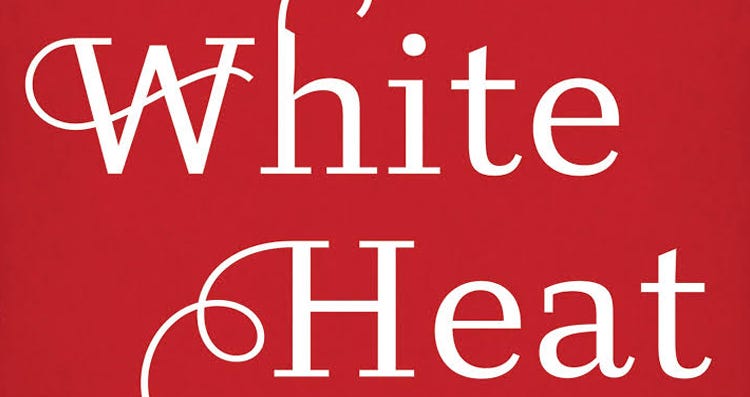Books & Culture
The Writing Life as Its Cracked Up to Be
In this collection, readers are offered a window into a strange and blessed writerly mind — a mind to which we’re granted lucky access

Joyce Carol Oates begins her latest book — a four hundred-page nonfiction collection — with a trio of combative, idiosyncratic essays about inspiration, both as an abstract writerly concept and the process by which Oates completed a string of history-inspired stories. Combative, here, because Oates is not above picking fights with writers of stature: Socrates “dares to say” (says Oates) that writerly inspiration is divinely gifted, not humanly crafted; and Plato’s concurring opinion (says Oates) is “churlish.”
If Oates insists that writerly inspiration does not come from above, there might yet be hope for the rest of us not-nearly-as-productive souls. The collection, which borrows its title from an Emily Dickinson poem, is (so says its cover) a set of essays ostensibly about “Inspiration” and “the Writing Life,” though the essays and reviews between these covers seem collected less out of thematic connection and more out of a time for harvest. It’s time to check in on what Oates has been reading, and why, this collection implicitly announces to the reader, and we follow.
The first essay in the book, “Is the Uninspired Life Worth Living?,” discusses the struggles her predecessors have faced while searching for inspiration and, later, creative survival, focusing on daunting characters like Mary Shelley and Herman Melville. (In discussing the latter’s early detractors, Oates characterized critical reviewers of Moby Dick as “human-sized harpooners surrounding a mighty Leviathan.”) In a subsequent essay, Oates discusses her own inspiration for the stories in Wild Nights!: Stories About the Last Days of Poe, Dickinson, Twain, James, and Hemingway, all of which, as she describes in Soul at the White Heat, are rooted in a love for the authors-in-question and an impulse to jiggle their language and mission, lovingly. “I take for granted the fact of Hemingway’s genius,” Oates writes here, “[and] this is true for all of the subjects in Wild Nights!”
“[Joyce Carol Oates challenges the idea that] writerly inspiration is divinely gifted, not humanly crafted.”
The rest of Soul at the White Heat collects a number of Oates’ recent book reviews and critical essays, best read as a wealth of new recommendations from a bright person with very great taste — new recommendations, that is, for readers like me who do not religiously read or adequately remember who reviews what in The New York Review of Books, where most of these pieces originally appeared.
This puts me, Oates’s reviewer, in the unenviable position of reviewing a review — or, a series of reviews — which is only so fair to Oates and her subjects and to my own readers here.
But it is fair to say that, even in her book reviews, Oates reveals dizzying mastery. Her review of Claire Tomalin’s biography of Charles Dickens begins with analytical summary of the strengths and weaknesses across Dickens’s entire body of work — written as though the language breezed effortlessly from Oates’s fingers, as does much of Oates’s best writing (“One might say that [Dickens’s] subject is his unique rendering of his subject, in the echo of Mark Rothko’s statement, ‘The subject of the painting is the painting’”). Her authoritative prose suggests that, rather than restating information from the book she is reviewing, Oates is the expert here.
“Even in her book reviews, Oates reveals dizzying mastery.”
Add these reviews to Oates’s Wild Night!-esque historical canon. Oates’s essays on Dickens, Lovecraft, and Georgia O’Keefe (whose lives Oates views through the lenses of their published biographies) are fitting companions to her famous fictions about Robert Frost, Marilyn Monroe, Jeffrey Dahmer, and Ted Kennedy, to name but a fraction of the contemporary historical figures Oates has memorialized, intelligently, in print. The strongest of her essays here concerns Mike Tyson, and though it’s most technically a review of Tyson’s memoir, Oates draws heavily on her longstanding admiration and knowledge of boxing, and drifts — as in a story — into lyric analytical modes, stating, for example, “A classic long fight divides into acts, or scenes, as in a play.”
The more conventionally structured book reviews in the collection (labeled “Contemporaries” in the Table of Contents), are, truth be told, less exciting than Oates’s bio-essays discussed above, but this is to a noble and respectful end: here, Oates allows her wizardry to take a backseat to description and discussion of her fellow writers’ work, never overloading her analysis with scene-stealing prose that would deflect attention from still-living writers (J. M. Coetzee, Lorrie Moore, Louise Erdrich, and Paul Auster, et cetera, et cetera). Oates’ contemporary reviews are less interesting when read in succession than they would have been in their original, newspaper form, but they contain all the pleasures of a loving, thoughtful recommendation and summary.

Soul at the White Heat will be no one’s favorite book. Due to the specificity of its subjects, it will not join the canon of great craft books from twentieth-century masters. Think of the book more as a worthy bonus volume of literary contribution from one of our best and most prolific geniuses. At times flashily essayistic, at times conventionally literary reportage, Soul at the White Heat is if nothing else a window into a strange and blessed writerly mind — a mind to which we’re granted lucky access. Think of the book as (as Oates writes of Doris Lessing) “a gift that cannot be analyzed; it must only be honored.”









